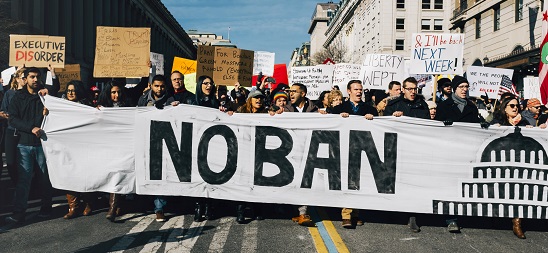Help Defend Asylum
CGRS relies on the generous support of people like you to sustain our advocacy defending the human rights of refugees. Make a gift today!

August 22, 2017 - On June 26, the U.S. Supreme Court announced that it would hear arguments in October on President Trump’s travel ban, allowing a narrow portion of the ban to take effect. However, the Court’s order prevented the Administration from enforcing the ban against “foreign nationals who have a credible claim of a bona fide relationship with a person or entity in the United States.” On July 13, U.S. District Judge Derrick Watson issued a ruling further restricting the ban’s implementation. Judge Watson’s decision broadened the definition of a “bona fide” relationship to include refugees with ties to U.S.-based resettlement agencies. The ruling also expanded the Trump Administration’s narrow interpretation of close family ties sufficient to exempt individuals from the ban, which had originally been restricted to nuclear family relationships, excluding the grandparents and grandchildren of U.S. citizens.
Following the July 13 ruling, the Trump Administration filed a motion asking the Supreme Court to clarify its June 26 order. The Court denied the motion, upholding Judge Watson’s broader interpretation of close family ties. Unfortunately, the Court stayed the portion of Judge Watson’s decision exempting from the ban refugees in the process of resettlement. While the majority of refugees do have close family ties in the United States as defined in the July 13 ruling, the Supreme Court’s latest order leaves in limbo the many who do not.
CGRS has decried the Trump Administration’s efforts to exclude Muslim refugees and immigrants since the president signed the first version of the travel ban in January. In all of its iterations, the ban impermissibly targets Muslims on the basis of religion and endangers the lives of refugees fleeing persecution, violating our international obligations and undermining our nation’s most cherished values of due process and equal protection. We are hopeful that the Supreme Court will reach the correct conclusion in October and prevent the Administration from banning any individuals under the discriminatory Executive Order.
 Get help
Get help Log In
Log In




